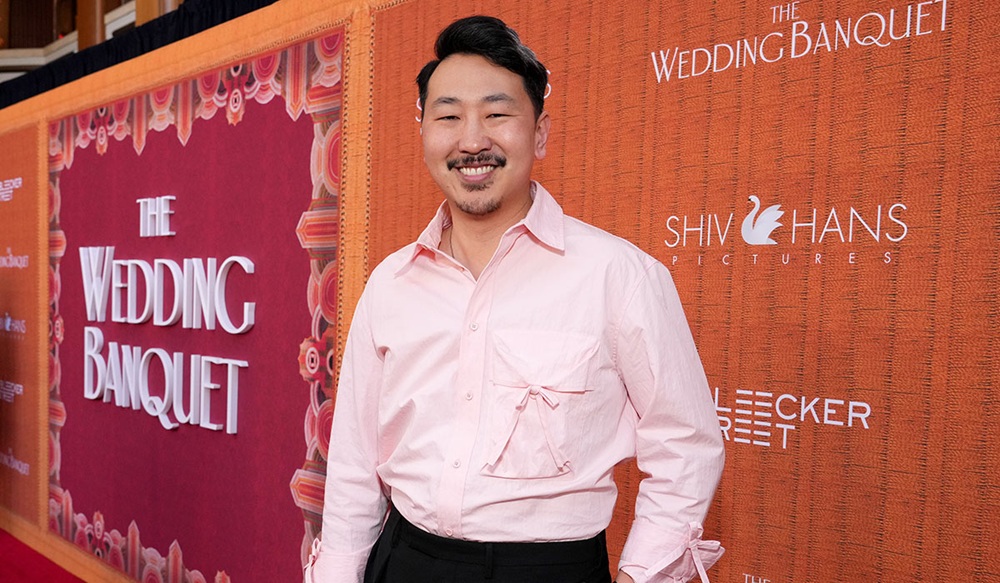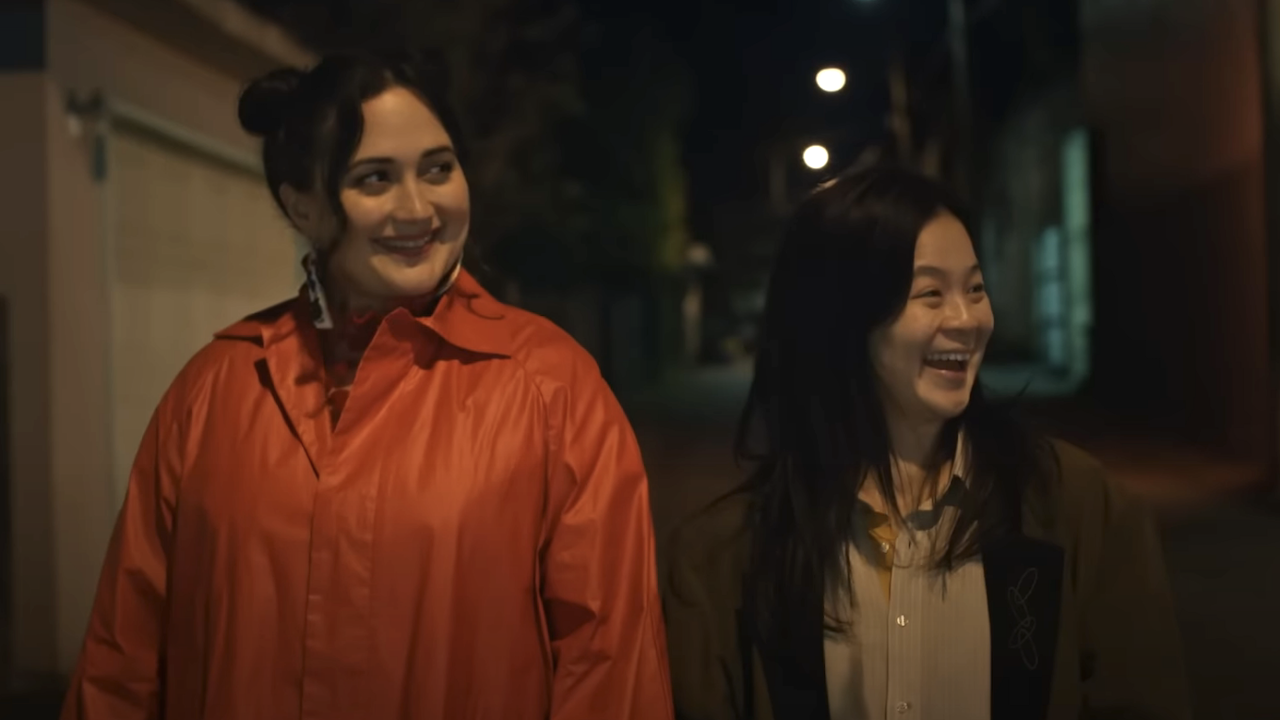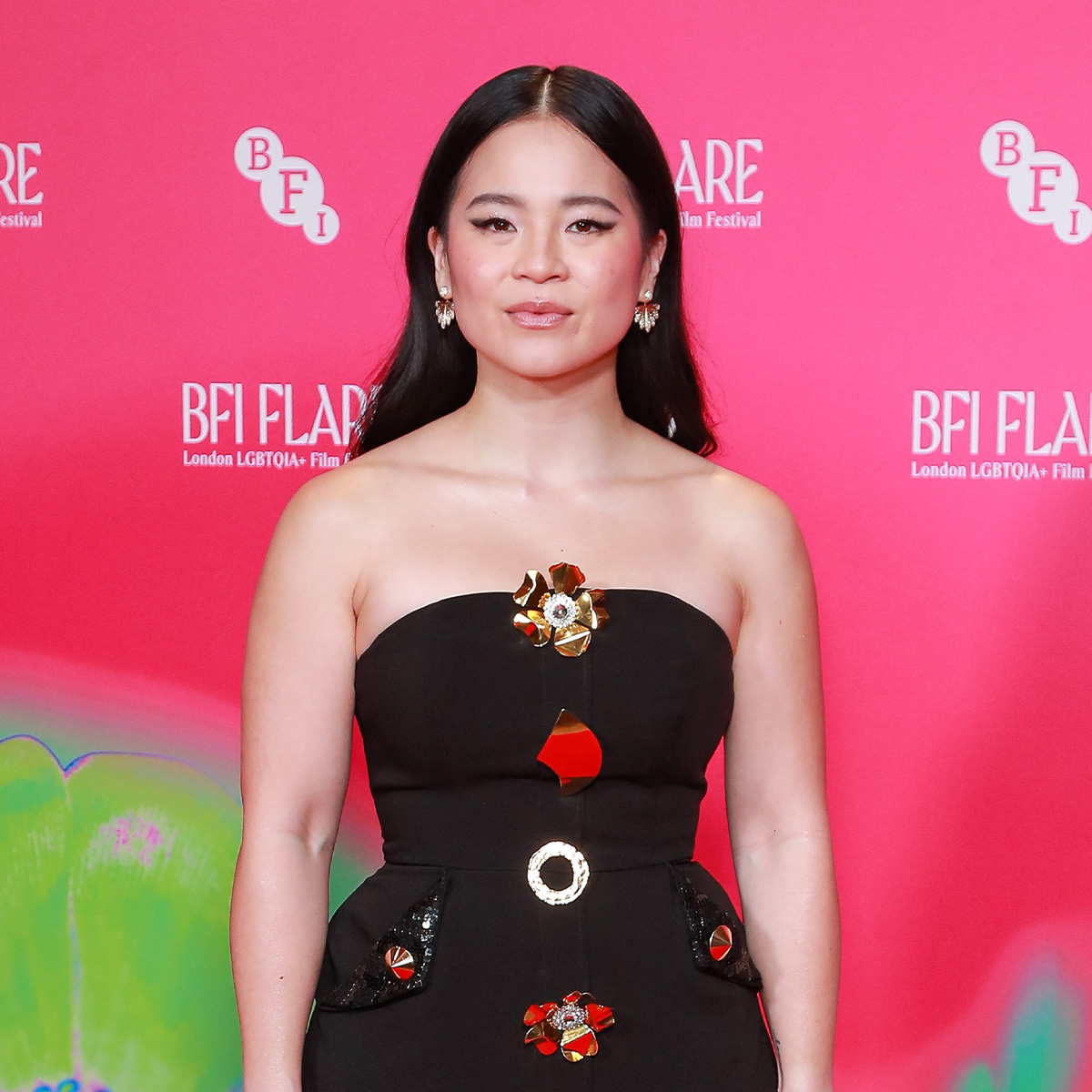Releasing April 18th, 's highly anticipated queer film, , has been stirring all the buzz since its "crowd-pleasing" reception at the Sundance Film Festival. Crowded with a star-studded cast including SNL's , , , , and Oscar winner , the old-school rom-com is satisfying moviegoers' desire for more lively and modern LGBTQ+ stories, all while rebooting one of the most groundbreaking Taiwanese films from the early 90s.
Long before LGBTQ+ representation became part of mainstream conversation in film, delivered something revolutionary—. With a higher return ratio than even 's , Lee achieved worldwide acclaim when he made a cross-cultural gay film that wasn't derogatory about homosexual representations or stereotypical Asian characters. Beneath its situational humor lies a pivotal snapshot of the immigrant experience and the struggles of coming out within a traditional family. For many Asian queer audiences—even for Ahn—The Wedding Banquet wasn’t just a film.
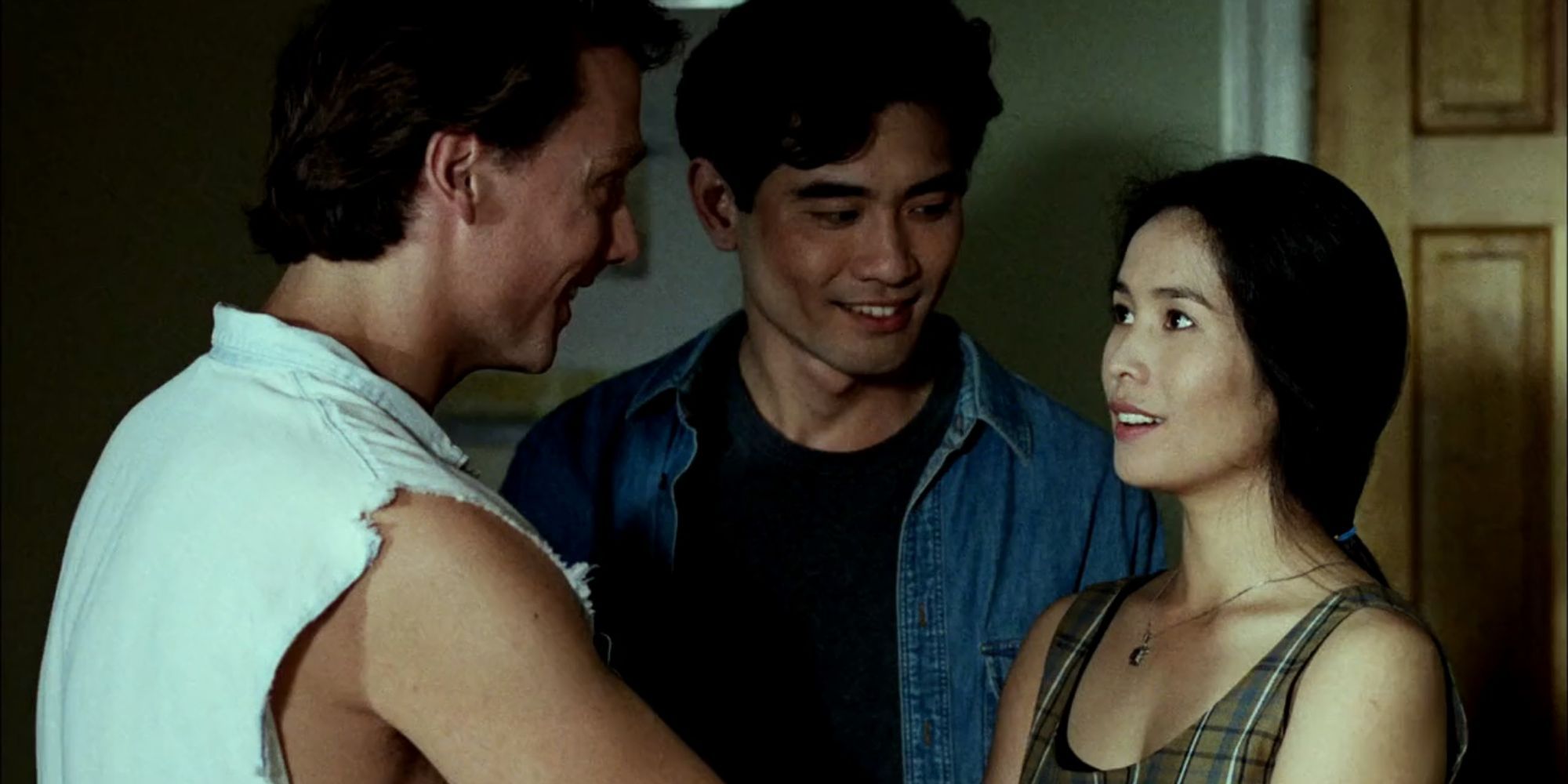
30 years ago, when gay marriage wasn't legal in the States, a queer story involving an American man and an immigrant was unimaginable. Not to mention,When they did appear, it was often through a white lens—exoticized, diminished, or played for laughs. The Wedding Banquet upended all of that. Inspired by a mutual friend's life, then-39-year-old filmmaker Ang Lee, , and broke the conventional mold in more ways than one with The Wedding Banquet. It was only Ang Lee’s second film, but it already bore the hallmarks of his career-long strength that finds beauty in the tender moments. His queer classic illuminated the challenges of interracial same-sex couples under the pressure of Confucian values, creating a heartwarming yet emotionally liberating narrative rich in the importance of family.
Set in early 1990s New York, the story centers on Gao Wai-Tung (), a successful Taiwanese-American real estate agent living in Manhattan with his white American boyfriend, Simon (). Their life together is loving, rocky, but mostly hidden. Wai-Tung has yet to come out to his parents back in Taiwan, who persistently urge him to marry a promising Chinese woman to continue the family line. with tenant Wei-Wei (May Chin), a Chinese painter facing deportation.
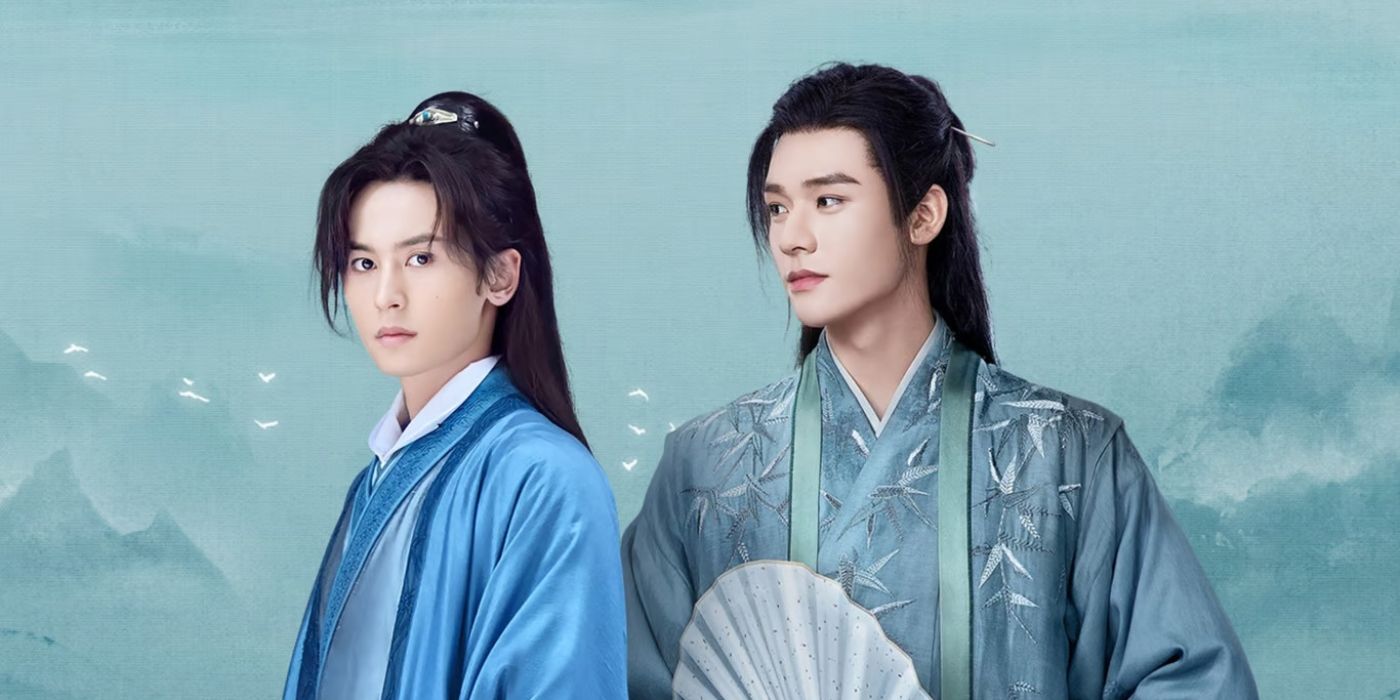
Related
One of the Best Queer Historical Dramas Isn't Explicitly Queer
If you’re a fan of 'The Untamed,' look no further than this series for your next watch.
What was intended as a simple green card arrangement spirals As relatives pop up and expectations rise, Wai-Tung and Simon find themselves deeper in a charade that begins to crack with the emotional equilibrium of everyone involved. What follows is a series of comic, awkward, and deeply touching moments as secrets strain relationships, truths teeter on the edge of exposure, and Wai-Tung is forced to confront how long he can live between worlds.
When The Wedding Banquet debuted in 1993, it made history, though quietly and humbly, as there was nothing like it. In fact, , per EBSCO. Like the , the Asian immigrant experience was finally being told with a vulnerable heart. Here was a gay Asian male lead who was successful, desirable, complex, and loved. Here was a film that didn’t center on white conformity, but an honest family steeped in its own cultural norms. Here was a story about being gay and Asian,
Mr. and Mrs. Gao, played by and , are proud, loving people whose worldview is shaped by ingrained cultural expectations. Their desire for Wai-Tung to marry and carry on the family name is purely based on tradition, which makes their son's sexuality even more difficult to comprehend. One of the most tender scenes in The Wedding Banquet isHe may not understand their relationship, but he is willing to let his son live his life. Mr. Gao accepts their future by giving Simon a money-filled red envelope, traditionally given in marriage circumstances for good luck in Chinese culture. It's a beautiful, cross-cultural, identity-liberating moment that defines the entire film's spirit. Masterfully, as his direction is observational, subtle, and empathetic.
Ang Lee, who had yet to become the household name behind Crouching Tiger, Hidden Dragon, paved the path for many LGBTQ+ and Asian American films to follow in its footsteps. It asked audiences to sit with discomfort and contradiction. The original The Wedding Banquet became a cultural landmark that grossed twenty-three times its budget, won the Golden Bear at the Berlin International Film Festival, and received an Academy Award nomination for Best Foreign Language Film.
Fast forward to Andrew Ahn’s 2025 reimagining, and the emotional core remains, but the story now takes the complexities of 21st-century queer life to new heights. Set in Seattle, it follows Min (Han Gi Chan), a Korean artist navigating immigration hurdles and the sensitive dynamics of queer parenthood. While Ahn’s version expands the themes to fit today’s social topics—bringing in IVF, multicultural partnerships, and evolving family structures—it keeps the same desire for belonging. Where Lee’s version is tender and restrained, Ahn is expected to speak more frankly, reflecting how the definition of “family” has grown, while reminding us that the need to be understood hasn’t changed.
Featuring openly queer Asian actors like Bowen Yang and Kelly Marie Tran, the remake pays homage to Ang Lee’s original. The remake carries it forward, and speaks to a new generation of LGBTQ+ viewers who are navigating their own set of challenges and freedoms. Three decades later, cinephiles are still unpacking the closet Wai-Tung lived in—but now, we have more voices telling that story and more ways to tell it.







